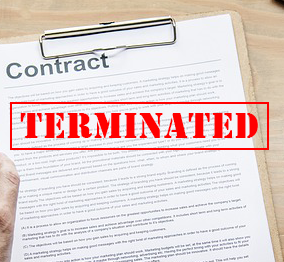The Most Common Licensing Violations Committed by Certified Contractors, Part IV: Abandoned Construction Project Violation
Reading Time: 3 minutes
Part IV of this series will discuss the ramifications of abandoning a construction project. It will also cover potential disciplinary actions by the Construction Industry Licensing Board (“CILB”) for doing so. It is no secret, everyone in every business deals with difficult customers. In the construction industry, your actions can lead to discipline being issued against your license, due to an abandonment violation. Before you make the decision to walk off a job, read this article to find out what the law specifically says about an abandoned construction project violation and how to better protect yourself.
Abandoned Construction Project Violation
Firstly, it’s important to understand what the CILB considers grounds for discipline when a contractor abandons a construction project. In relevant part, § 489.129(1)(j), Florida Statutes, defines abandonment as:
Abandoning a construction project in which the contractor is engaged or under contract as a contractor. A project may be presumed abandoned after 90 days if the contractor terminates the project without just cause or without proper notification to the owner, including the reason for termination, or fails to perform work without just cause for 90 consecutive days.
Just Cause and Proper Notification
There are two critical parts of this statute: (1) just cause, and (2) proper notification, including the reason for termination. When considering whether to abandon a construction project, it is imperative you have the proper basis to do so. And you must notify the owner of your reasons.
Florida case law establishes the standard of having just cause to terminate your responsibilities under a construction contract. The facts and circumstances of each situation are different. The actions of the customer, typically a homeowner, can provide justification to abandon a project. According to Champagne-Webber v. Ft. Lauderdale, 519 So. 2d 696, 697 (Fla. 4th DCA 1988), in construction contract law an owner has an implied obligation not to do anything to hinder or obstruct performance by another person. An owner’s failure to cooperate with the contractor is a breach of contract, and, therefore, is just cause to terminate work. Id. Similarly, a homeowner’s failure to pay change orders or according to the draw schedule justifies a contractor’s cessation of work. J.M. Beeson Co. v. Sartori, 533 So. 2d 180 (Fla. 4th DCA 1989).
Prosecution of an Abandonment Violation
When prosecuting an abandonment violation, the Department of Business and Professional Regulation (“DBPR”) will analyze the facts of the case and compare to the 90 day presumption. It will be difficult for the DBPR to prove an abandonment violation, if the customer terminates the contract within the 90 day period. License holders should be aware, if the DBPR is able to prove an abandonment violation, the customer may be eligible for the Florida Homeowners’ Construction Recovery Fund (“Recovery Fund”).
Conclusion
Dealing with a difficult homeowner is not enough to establish just cause. The CILB has issued discipline to license holders for abandoning a construction project, even though their customer may have been difficult. Consequently, it is important to understand the elements of just cause and whether your situation meets the definition. Prior to abandoning a construction project, it may be beneficial for you to discuss with your attorney the pros/cons of doing so.
Learn more about this topic by reading all the blog articles in this series:
- Part I: Common Licensing Violations
- Part II: Civil Judgement Violation
- Part III: Building Code Violation
- Part IV: Abandoned Construction Project Violation
- Part V: Unqualified Company Violation




